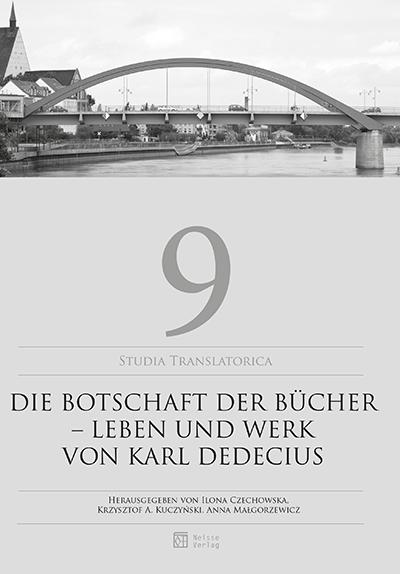„Liryczny triumwirat” – Karla Dedeciusa przekłady liryki rosyjskiej
The lyrical triumvirate – Karl Dedecius’s translation of Russian poetry
Author(s): Julian MaliszewskiSubject(s): Translation Studies
Published by: Oficyna Wydawnicza ATUT – Wrocławskie Wydawnictwo Oświatowe
Keywords: translation; translation of poetry; metaphor; culture-crossing; lyric poetry; Russian poetry; Dedecius
Summary/Abstract: In Karl Dedecius’s activity, translations of Mikhail Lermontov’s poetry take a special place. Dedecius translates Lermontov’s poetry in extraordinary circumstances – during the Soviet war imprisonment. Lermontov’s poems meant a lot to the German translator: they were not only consolation in the particularly hard and almost hopeless situation but also a unique “psy-chosomatic” therapy. The empathy and strong identification with the fate of Russian poet are also apparent in the German translations of Lermontov’s poetry. Even if losses happen, they are replaced successfully by an artistic and interpretive gain. This proves – in the case of Karl Dedecius – that the literary and semantic structure of a well translated poem cannot fail due to small divergences and modifications of particular metaphors. Translation of poems of Russian poet Anna Akhmatova is a separate field in Dedecius’s trans-lation creativity. In the translation process of Akhmatova’s poetry a question arises to what extent the emotionality and reflexivity of Russian verses can be translated. The new translation model conforms completely to the core area of the semantics and stylistics of the literary work and to the reconstruction of the creative process of the author of the original. This model has been de-fined as the diegetic translation strategy. Works of Russian and Soviet poet Vladimir Mayakovski are regarded as an exceptional translation work of Karl Dedecius. The detailed analysis of several Dedecius’s translations demonstrates transgression as the core element of the translation strategy of his poetry. This artistic vision of the present time is used effectively and constitutes an intrinsic part of the translation in order to influence the target-language recipients familiar with Russian poems and to arouse their interest in the modern poetry.
Journal: Studia Translatorica
- Issue Year: 2018
- Issue No: 9
- Page Range: 139-173
- Page Count: 35
- Language: Polish

